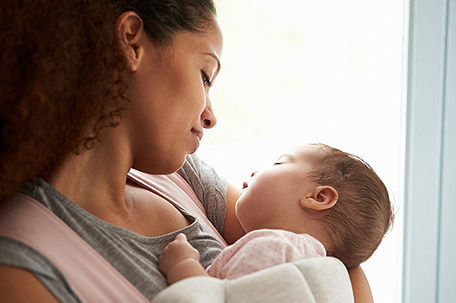
BPT
Every year in the United States, approximately 700 women die as a result of pregnancy or delivery complications, and more than 50,000 experience unexpected health problems, according to the Centers for Disease Control and Prevention (CDC). Some pregnancy complications (for example, morning sickness) are not usually serious, but others, such as high blood pressure, can become severe enough to threaten a mother’s life. Such complications can occur during pregnancy or delivery and in the months, or even years, following delivery.
Teenagers, as well as women who are older than 35 years of age, women who are African American or Native American, and women who are pregnant with twins may be at higher risk for pregnancy complications. Chronic medical conditions prior to pregnancy – such as cardiovascular disease, high blood pressure and diabetes – can also increase the risk for complications. The good news is that there are a number of things that all women can do to stay healthy and reduce their risk of pregnancy complications.
1. Talk with your health care providers and make a plan
Speak with your health care providers about your intention to become pregnant or as soon as you find out that you are pregnant. Work with them to develop a plan so you can be your healthiest before, during and after pregnancy. Some pregnant women are eligible for Medicaid. These benefits are discontinued after delivery, but moms may qualify for further assistance from one of the nearly 1,400 health centers funded by the Health Resources and Services Administration. Find a center at https://go.usa.gov/xyyAn.
Consult health care professionals about your use of any drugs or supplements. If you have a chronic medical condition, it is particularly important to develop a plan to manage it appropriately from early pregnancy through postpartum. Discuss your individual and family health history during medical exams, including problems during prior pregnancies and postpartum periods, as well as the signs of pregnancy complications and how to manage them if they arise.
Social workers, community health professionals, midwives, doulas, family members and friends can also provide valuable support during and after your pregnancy. And you know when something is not right with your body, so let someone know! “Pregnant women need a team of people to help them have the healthiest pregnancy possible, so it’s really important to have a supportive network,” says Dr. Samia Noursi of the Office of Research on Women’s Health (ORWH), a part of the National Institutes of Health.
2. Have a healthy lifestyle by eating well and being active
Diet and regular exercise can help you maintain a healthy weight to build a foundation for a healthy life and reduce the risk of pregnancy complications. The CDC website has a handy chart for determining healthy weight gain during pregnancy, at https://go.usa.gov/xyy7V, and offers guidelines on physical activity during pregnancy, at https://go.usa.gov/xyy7G. The U.S. Department of Agriculture offers a special web page on healthy eating for moms and pregnant women at https://go.usa.gov/xyy76.
3. Take care of your mental health
Some emotional ups and downs are normal. In fact, many women feel overwhelmed, sad or anxious at different times during and after pregnancy. For many women, these feelings go away on their own. If you continue to experience sad or anxious moods, loss of interest in fun activities, problems concentrating or other symptoms of depression or anxiety, or if these feelings get worse, talk with someone so you can manage them and take care of yourself and your baby. To learn more, see this resource from the Eunice Kennedy Shriver National Institute of Child Health and Human Development (NICHD): https://go.usa.gov/xyy7J.
4. Start prenatal care early, and attend all scheduled visits
Research shows that starting prenatal care early and going to these visits regularly can decrease risk of pregnancy complications. Typically, this means prenatal care visits monthly during the first 28 weeks, every two weeks between weeks 28 and 36, and weekly from week 36 to delivery. Care for pregnant women should continue after delivery. The American College of Obstetricians and Gynecologists (ACOG) recommends a follow-up visit within the first three weeks of giving birth and a comprehensive assessment no later than 12 weeks after delivery.
Moms-to-be can find more information on the many steps they can take toward a healthy pregnancy at the websites of NICHD (https://www.nichd.nih.gov/health/topics/preconceptioncare/conditioninfo/healthy-pregnancy), ORWH (www.nih.gov/women/maternalhealth), the U.S. Department of Health and Human Services’ Office on Women’s Health (https://www.womenshealth.gov/pregnancy), and ACOG (https://www.acog.org/Patients). Would you like to tell researchers about your experiences during pregnancy and after giving birth? Check out PregSource (https://pregsource.nih.gov), a research project that aims to learn about the pregnancy experience directly from women.

















Leave a Comment